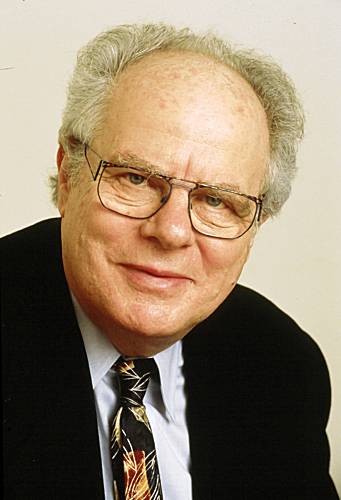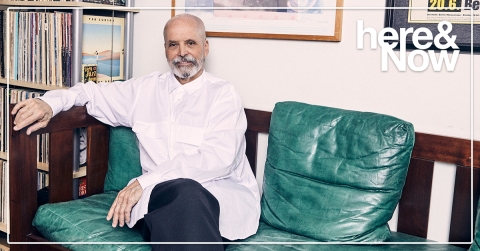Michael Steinberg, the music critic, author, frequent contributor of essays to Nonesuch recordings, and greatly respected colleague, died on Sunday, July 26, at hospice in Edina, Minnesota, at the age of 80. The Boston Globe, where Steinberg was classical music critic from 1964 to 1976, quotes composer John Adams's recent memoir: "Michael’s ability to render, in beautiful and uncluttered English prose, complex and subtle musical issues set the gold standard for how one communicates about music in words."
Michael Steinberg, the music critic, author, frequent contributor of essays to Nonesuch recordings, and greatly respected colleague, died on Sunday, July 26, at hospice in Edina, Minnesota, at the age of 80. Though he had been diagnosed with cancer three years ago, Steinberg continued to live a full life and to contribute his unparalleled gift of music writing to recordings as recent as Richard Goode's complete Beethoven piano concertos, released in May, and Gidon Kremer's complete Mozart violin concertos, out just last week.
From 1964 to 1976, Michael Steinberg was the classical music critic at the Boston Globe and then, from 1976 to 1979, the program annotator for the Boston Symphony Orchestra. He made a name for himself both by the high standard to which he held the performances he reviewed and at the same time by his ability to communicate the power of the music through his writing.
In an appreciation in today's Boston Globe, the paper's Jeremy Eichler quotes from composer John Adams's recent memoir, Hallelujah Junction, describing this very quality. "Michael’s ability to render, in beautiful and uncluttered English prose, complex and subtle musical issues," Adams writes, "set the gold standard for how one communicates about music in words."
Adams's Nonesuch recordings have frequently been the beneficiary of such words, with Steinberg having written the liner notes for three of the composer's operas—Nixon in China (1988), The Death of Klinghoffer (1992), and El Niño (2001)—and a number of other recordings. Los Angeles Times music critic Mark Swed, in a touching remembrance of the writer, says that these notes "are among the best firsthand source material we have ever had on a major composer."
Swed describes Steinberg as a mentor, both to him and to "a great many of us in many walks of music. Not only writers came under the spell of his words, and of the man, but also musicians, composers and administrators. And, most important of all, audiences ... He addressed all of us and brought all of us together."
Michael Steinberg had moved West in 1979 to become the publications director and artistic advisor for the San Francisco Symphony, positions he held till 1989. San Francisco Chronicle music critic Joshua Kosman quotes the Symphony's Executive Director Brent Assink, describing Steinberg's unique contributions this way: "Michael used language, both written and spoken, to illuminate another language, music, in a way that few could."
Following his decade with San Francisco, Steinberg moved to Minneapolis, when his wife, Jorja Fleezanis, whom he had married in 1983, was named concertmaster of the Minnesota Orchestra. He became artistic adviser with the Orchestra, while maintaining the positions of program annotator for both the San Francisco Symphony and, from 1995, the New York Philharmonic.
---
In Michael Steinberg's memory, donations may be sent to The Michael Steinberg & Jorja Fleezanis Fund to Spur Curiosity and Growth through the Performing Arts and the Written Word, Attn. Shelli Chase, Chase Financial, 7900 Xerxes Avenue South, Suite 910, Minneapolis, MN 55431.
- Log in to post comments



